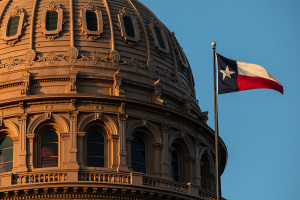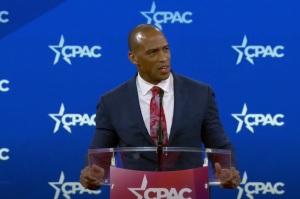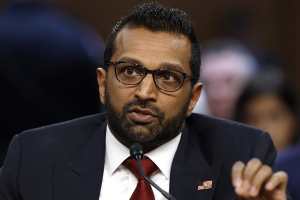A new trend? Christian colleges, universities lowering, freezing tuition prices
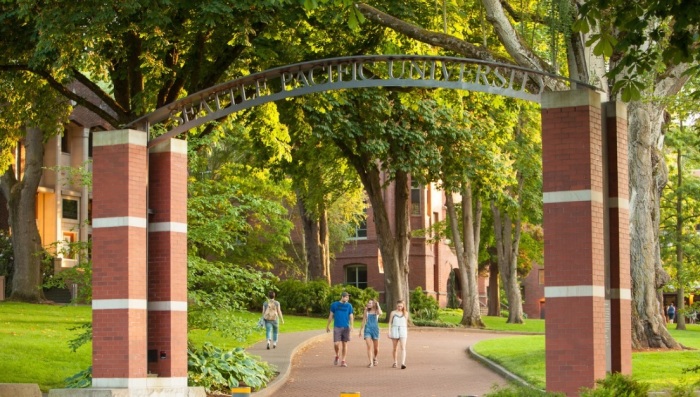
In recent times, multiple private Christian colleges and universities have garnered headlines for decisions to either freeze or reduce tuition costs for students.
Houghton College in Allegany County, New York, announced earlier this month that it was cutting tuition from $33,920 this year to $15,900 starting next fall.
Liberty University of Lynchburg, Virginia, announced in September that it was continuing a tuition freeze for both online and residential students for a third year.
Daniel Nelson, chief institutional data & research officer at Bethel University, has worked with the Council on Christian Colleges and Universities on research regarding financial aid. He explained to The Christian Post that efforts by some Christian schools to cut or freeze their tuition costs have been developing over the past few years.
Nelson reported having found eight Christian schools that engaged in what he labeled a “tuition reset,” which meant they “dropped their sticker price substantially.”
More recently, he found that “three more schools, just in the last month or so, have announced that they’re doing the same.”
He believes it is “a start of a trend” that will likely exist even after the coronavirus pandemic has ended.
“I predict that this will continue and there will be many more Christian colleges that will do something on the pricing and discounting side in the next year or two,” he said.
“Because the forces that were in place prior to the pandemic were already pushing us in this direction and the pandemic just is going to be pushing some of these schools over the edge.”
He contrasted these most recent efforts with past tuition freezes offered over the past 20 or so years, in which the price was fixed for only a brief period of time.
“There have not been noticeable trends in the past, but if we’re prognosticating into the future, this is where I think that there will be more of a trend as schools struggle with both the pandemic and the issues that were underlying prior to that,” he said.
Independent of COVID-19
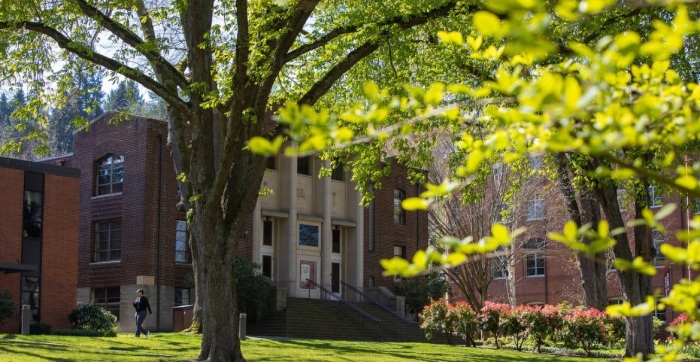
Seattle Pacific University, a nondenominational Christian school based in Washington State, recently announced that its tuition price will be reduced by 25% starting in fall 2021.
Jordan Grant, assistant vice president for Enrollment Operations and Student Financial Services at SPU, told CP that the plan to cut tuition started in April 2018.
At the time, university leadership wanted to find ways to make an SPU education more affordable and also to possibly restructure its financial aid offerings.
“We did quite an extensive review and environmental scan of what other schools were doing, some alternative pricing models, financial aid models, and we looked at many different attributes,” explained Grant.
“Through that research, we’ve had some consultants run some models for us to determine what would be the best for our students, our prospective students, and of course our university.”
In February, Grant and his fellow researchers presented their findings before SPU leadership, with the decision being made to go forward “happening independent of the coronavirus.”
“It was somewhat providential knowing the challenges that students and families are having during COVID and then providing them some relief, at least something to look forward to for relief,” said Grant.
Under the new model labeled “Tuition Reimagined,” Grant told CP that SPU also “restructured our scholarships” and committed themselves to “a historically low tuition increase after 2021-2022 to be no more than a net 4% tuition increase.”
“Historically, SPU has had a 5% increase, some private universities have been above that. We think this is really helpful for students to plan better and to lower a rate on an already lower starting rate,” he continued.
“We anticipate that 4% historically low tuition increase to be in place for the next four years, we are committing to that, to those students enrolling next autumn.”
Nathan Mouttet, vice president for enrollment management and marketing at SPU, acknowledged that there might be some financial risk to the decision.
He pointed out that “when you do reduce your top line” there might be “some revenue that can be lost” as a result, noting that they hope to “attract and retain more students that would in essence make up for that potential loss.”
Mouttet estimated that SPU would need to get “somewhere in the neighborhood of a greater than 5% total student enrollment increase.”
Numbers aside, he believes there is a “missional side” to the effort as many students face the question of where to go for college.
“I want something that reflects my values and my faith at a small community of learners would be ideal,” he said, explaining the conflict. “But if I have the chance to get into a state university at significantly lower sticker price not knowing what financial aid is going to be at the other end of this, I‘m likely going to go for the economic savings versus potentially the values that I might more closely align with.”
“Clearly, you’re trying to make this possible for students financially, but you’re also trying to make it possible for a missional reason.”
A tipping point

Gordon College, a Christian private school based in Wenham, Massachusetts, recently announced that its tuition rate for next year will be cut by 33% compared to this year.
“As the gap has grown between our stated price and the more affordable net price families would actually pay, the irony became that even alumni were assuming that the Gordon experience they loved and want for their own children was out of reach,” stated President D. Michael Lindsay.
“It’s not, and better price transparency will remind students that educational excellence can still be affordable, and these new changes will now bring Gordon within reach for many.”
Gordon College spokesman Rick Sweeney told CP that the decision to cut tuition “has been considered for several years” and “would have occurred without the pandemic.”
“But given the strain the pandemic has placed on families considering college, it did crystallize the timing,” explained Sweeney, who labeled the change “a reboot and not a temporary reduction.”
As with SPU, Gordon had research that found that the high sticker price for tuition was the lead reason why many prospective students were not choosing the college.
Sweeney felt that he was “confident we will maintain the needed net revenue and do hope this attracts more students and families who otherwise would not consider Gordon because of the high sticker price.”
“Listen to your stakeholders. The ‘high sticker price/high financial aid’ model is not sustainable. The financial uncertainty brought on by the pandemic only hastens this decision,” he stated.
“Gordon alumni and others have told us for several years that the education they valued and wanted to share with their own children had become too expensive. There’s a tipping point for everything, and the college believes now is the right time to make a private Christian education more accessible.”
Is it a sustainable model?

Tim Fuller, founder of Fuller Higher Ed Solutions and formerly vice president for enrollment management at Houghton, has researched Christian school enrollment and strategy.
In an interview with CP, Fuller had his doubts about a handful of Christian schools pursuing tuition resets and freezes being a trend in light of the hundreds of Christian universities and colleges in the United States.
Nevertheless, he believes the “pressures” to consider such changes “were there already” and that “they have been exacerbated by the pandemic.”
“More people will be thinking about doing this. That begs the question of whether or not it is a good idea and whether it has worked for other people who have done it in the past,” said Fuller.
While the “mantra” may be “one of affordability,” Fuller noted that for many people, even with the tuition cuts, an education at one of these private Christian schools can remain unaffordable.
He gave the example of a school that has a $40,000 tuition cost that opts to cut it by 25%, which would make it $30,000 and thus “still not affordable for most people.”
“Suppose you’re a school with a thousand students and your tuition is $40,000 a year. And your discount rate is 65%. And so, you say ‘we’re going to cut our tuition from 40 to 30 and we’re going to make a requisite cut in our discount rate,’” Fuller explained.
“But if you attract more students and have less net revenue, as we’d say in North Carolina, that dog won’t hunt, or at least not for very long. It’s not a sustainable model.”
He also noted that past CCCU research in the 1980s and 2000s found that many prospective evangelical Christian students shy away from private schools for more than just tuition prices.
“It’s pretty clear that there’s a lot of the Christian public, the evangelical Christian public, who would be marvelous fits for CCCU schools that don’t even look at them seriously because the research suggests that they don’t think they’re good enough academically and they think they cost too much,” he said.
“Well, these strategies tinker with the price side of that thing, but they do nothing to address the value. In fact, they may distract from the value proposition.”
Fuller noted that the “hope for a strategy like this is that some of those people who wouldn’t have looked at you before because they saw the sticker price and went ‘yikes, we can’t do that’ would now look.”
“But I think the point of the other research is if the issue for me is not really price, if the issue is ‘I don’t perceive it's worth choosing,’ then tinkering with price may only exacerbate some of that concern rather than address it in some way.”
















